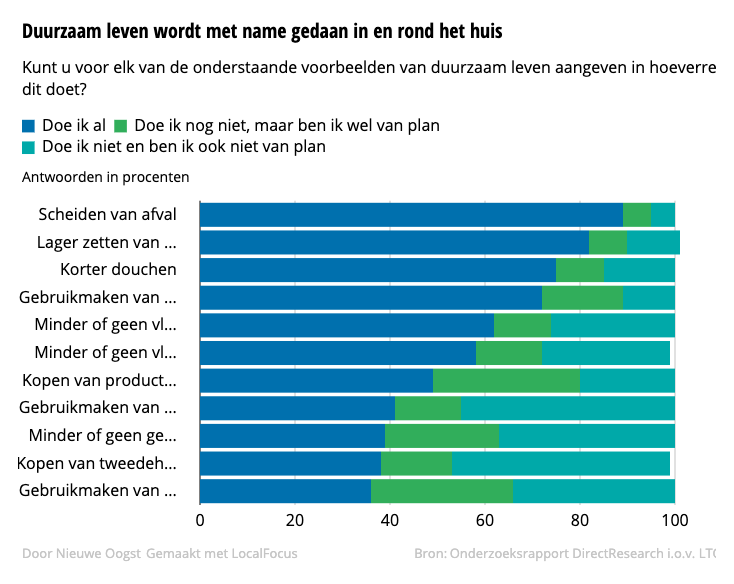Three quarters of the Dutch say they already live and consume quite sustainably. They are also willing to go the extra mile, and half are willing to pay a little more to do so. Moreover, nine out of ten Dutch people feel that the agricultural landscape deserves protection.
These findings come from an independent survey that LTO Nederland commissioned from research bureau Direct Research. The quantitative research among 1,038 Dutch people is representative for all Dutch people aged 18 years and older.
The survey shows that the Dutch public is in favour of agriculture.
The study shows that two out of three Dutch people are (very) positive about agriculture and horticulture in the Netherlands. Among other things because of its expertise, innovative strength and efficiency.

Only 6 percent are negative. According to the Dutch, the most important thing about agriculture and horticulture is the welfare and health of people. Environmental and nature conservation and food safety are also considered important themes, as well as protection of the agricultural landscape.
Of all the economic activities, people would rather live next to an arable farm, greenhouse or dairy farm than next to heavy industry, a freeway or Schiphol Airport. Also living next to a pigsty is not something many Dutch people like, although 11 percent have no problems with that.
Three quarters of the Dutch population prefer to live next to a piggery.
Three quarters of the Dutch find that they already live sustainably, for example because they separate waste, turn down the heating or eat less meat (58 percent). 62 percent said they already fly less or not at all and 12 percent are planning to do so (26 percent do not).
The ambitions for sustainable behaviour are not yet clear.
The ambitions for sustainable behaviour are greatest when it comes to buying products with sustainability features, one in three Dutch people want to do that more often. Striking is that at the same time they expect relatively the least effect of this measure and only 20 percent reads the label aimed at sustainability.

It is a well-known phenomenon: citizens are demanding, but consumers often choose the cheapest product at the shelf. The study shows that there is potential in sustainability as a revenue model. 50 percent indicate that they are willing to pay a premium for a recognizable Dutch product with higher standards.
LTO Nederland chairman Sjaak van der Tak is very pleased with the social appreciation of agriculture and horticulture that the survey revealed. This does not detract from the fact that a lot comes together in the farmyard: pressure from the market, regulations and ever-changing - sometimes contradictory - demands from citizens and consumers. Healthy products also need a sustainable price. That is more topical than ever.'
The interest group will discuss the results of the survey with its members next month during LTO Talks. Fortunately our farmers and market gardeners, with their innovative strength, are in an excellent position to tackle the many challenges,' says Van der Tak. At the same time, this does not happen by itself and we cannot do it alone. What can society expect from us, what must we do in return and how do we organize this? This research offers good leads for the LTO Talks.
The full research report is downloadable here.